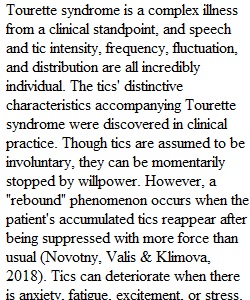


Q Instructions Your instructor will select an emerging issue in abnormal psychology (see below in green font) and assign you to either the "pro" or the "con" side of the debate. For example, you may debate the use of video and/or telephone therapy in the assessment and diagnosis of those seeking services. Your goals in the debate will be to: • Demonstrate understanding of the emerging issue and relevant research findings • Display critical thinking skills, while demonstrating an understanding of the emerging issue that enables you to present your side in a rational manner. • Identify at least two critical dilemmas and/or points related to the issue (e.g., ethics, socio-cultural norms) • Defend your position with compelling arguments and predictions for future trends • Select and apply relevant theoretical discussion, empirical data, and practical evidence from professional, scholarly journals. Format: • A page length is not set for this assignment. The emphasis is on clear, critical analysis. Historically, strong, well-developed papers average around 5-pages of text, before adding title page and references page. • Structure your paper utilizing APA style (7th Edition); this includes title page, headings, in-text citations, reference page, and general paper format (1-inch margins, double-spaced, appropriately sized sans serif or serif fonts - e.g., 12 Times Roman). An abstract is not required. • Accurately use APA style citations and references. Use in-text citations within your assignment and a reference list at the end. Text from outside sources either needs to be fully paraphrased in your own writing style (not just a few words changed) or needs quotation marks, even if cited. • Apply sound writing mechanics: write with clarity, paying attention to spelling, grammar, and syntax. • Submit to your Assignment Folder as a single document in either Microsoft Word, PDF, or RTF format. Debate Topic: In the age of the COVID-19 pandemic, a large number of young consumers of social media have developed symptoms of Tourette’s syndrome. For a brief overview of this phenomenon, please see the attached article by Heyman & Hedderly (2021). Should this phenomenon be treated as a real psychological disorder, or should it be dismissed as imitative behavior that does not warrant clinical attention? You may take either side of this debate, or you may argue both sides, as long as you use scientific sources other than Heyman & Hedderly (2021) to support your argument(s) and follow the general instructions for this assignment (presented above). Reference Heyman, L. H., & Hedderly, T. (2021). COVID-19 related increase in childhood tics and tic-like attacks. Archives of Disease in Childhood, 106(5), 420–421. https://doi.org/10.1136/archdischild-2021-321748 ________________________________________
View Related Questions